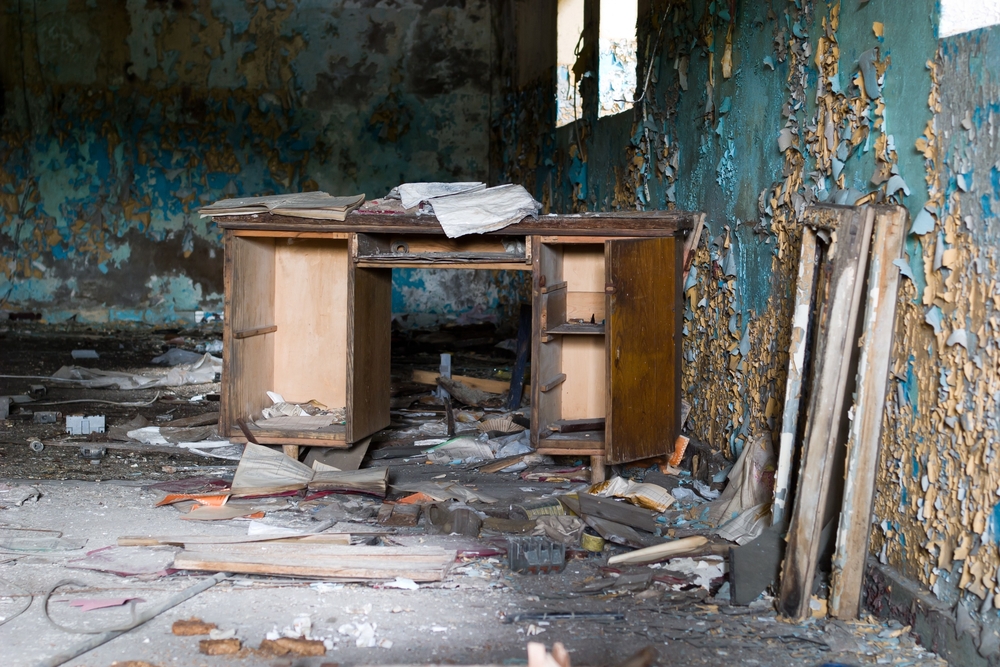Selling a house can be challenging, from putting it up for sale to finding the right buyer.
But when the house is a stigmatised property, the process can get a lot trickier.
What’s a stigmatised property?
A stigmatised property essentially refers to a property that’s associated with undesirable events or occurrences, even though there’s nothing physically wrong with the location and the house itself.
In Singapore, it generally refers to properties where an unnatural death has occurred in the house, such as a murder or suicide. Those who are more superstitious may shun these houses, perceiving them as “unclean”.
Even though some people don’t mind such properties, there’s also the concern that future buyers and tenants believe otherwise, affecting future demand and rental income. This can make it even harder to sell the house.
And that’s not all. The effect of the unfortunate event isn’t limited to the particular property.
An unnatural death in a house can affect the sale of its neighbouring houses
Ray Teo, a real estate agent from PropNex, explains to 99.co that an unnatural death doesn’t only affect the property in question, but also its neighbouring homes.
He recalled that when he was marketing a 5-room HDB flat in Tampines many years ago, the buyer decided to pull out of the deal at the last minute.
“On the day of closing the deal, the police discovered four dead bodies of a family. The husband had murdered his whole family and committed suicide. I also recalled seeing the body bags at the foot of the block at around 7pm that day.”

Unfortunately, the unit he was marketing was located on the 12th floor of Blk 470, the very same floor as the flat of the deceased family.
“In the end, we had to drastically reduce the selling price of the unit as my client had already bought another flat.”
(This is because HDB flat owners cannot own more than one HDB flat. The current regulation is that they must sell the first flat within six months.)
The unit was eventually sold months later to another buyer who knew about the murder-suicide case.
Is it a must to reveal an unnatural death in the property to a potential buyer?
Some countries prohibit real estate agents from withholding information about unnatural deaths in a property.
One such country is Japan, where realtors are required to reveal such information to potential tenants and buyers. Likewise, in some states in the US, sellers will have to disclose such information, with sellers in California being required to divulge any deaths in the property for the last three years.
But what about Singapore?
According to Ray, it was previously not necessary for agents here to disclose unnatural deaths in the property they are marketing.
“So in the olden days, we usually cool it off, then dispose of the unit silently after some time.”
However, this changed in 2010, when the Real Estate Industry Act 2010 was enacted.
Under the CEA’s Professional Service Manual for real estate salespersons, when asked about such a matter by potential buyers, the agents are obligated to find out from the seller, before sharing the information with the buyer (or the buyer’s agent).
This has since become a common practice in Singapore.
So how to sell a stigmatised property?
1. Set aside a “cooling” period of 6 months to 1 year
Given the unfortunate situation, it’s understandable that a family may wish to sell off the stigmatised property as soon as possible.
On the contrary, it’s best not to rush putting it up for sale.
“From experience, the closer the date of the sale to the time of death, the lower is the offer from a potential buyer,” Ray explains to 99.co.
Throughout his 22 years in the industry, the Advisory Associate Branch District Director had handled four to five sales of stigmatised HDB flats and condos.
His first experience dealing with such property was around 15 years ago, in his early days as a property agent. The property was an HDB flat where one of the owners had committed suicide.
He further shares that in general, if the suicide is too recent, agents will advise the client to set aside around six months to one year of “cooling” period before putting the unit up for sale.

2. Carry out some home improvements beforehand
Besides setting aside a cooling-off period, the owners should make some minor home improvements before putting the house on the market.
Ray adds that the usual practice for agents marketing such units is that they will recommend the sellers to do some minor touch-ups to the house. This includes giving it a fresh coat of paint and ensuring it looks clean and sterilised.

“Anything to make the potential buyer feel that it is value for money.”
Doing so also helps to remove any negative associations with the property, making it more appealing and presentable to potential buyers.
3. Be honest and transparent
But most importantly, honesty is the best policy.
When tasked with selling stigmatised properties, Ray’s advice is that property agents must be honest and transparent with their potential buyers. This includes disclosing all relevant information about the property’s history, including the unnatural death.
“This honesty can help to build trust between the buyer and the seller, and make the transaction smoother,” he explains.
This is because at the end of the day, if the location is right, the owners will still be able to get a good price for the property.
Despite the negative connotations, stigmatised properties can present a good opportunity
Unnatural deaths can make it harder to sell off stigmatised properties, as they leave a negative impression on potential buyers, comments Ray.
On the contrary, these properties can be a good opportunity for both buyers and sellers.
In fact, according to Ray, such properties can sell off quickly, in a span of two to three months. This is because buyers view them as a good opportunity to buy a house at a relatively low price.
The selling duration may even be faster as the owners understand the disadvantages of stigmatised properties, and are ready to reduce the price.
It also helps that not all buyers are superstitious, so such units will eventually be sold.
“The key to selling these properties is to make them desirable, regardless of their history. If the location is right and the property is priced competitively, buyers will still be interested, and the property can sell quickly.
“Ultimately, it is important to remember that while a property may have a history, it is still a valuable asset that can provide a comfortable home for its new owners.”
Properties for sale in move-in condition
Planning to sell your property soon? Let us help you connect with a property agent to handle it.
If you found this article helpful, 99.co recommends 3 questions potential buyers ask during home viewings that can make or break the deal and 5 ways selling your property can go horribly wrong (and how to fix it).
The post How to sell a stigmatised property in Singapore, according to a property agent appeared first on .











































































































